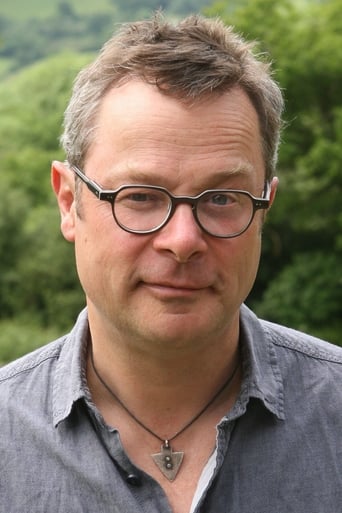
Rating:
0/10 by 0 users
Episode 6
Hugh goes in search of the imposing wild boar that have returned to the forest after three centuries. And he gets up close to the elusive 'phantom of the forest' - the goshawk, a bird of prey perfectly adapted to hunting in woodland. He also discovers why the forest is so good for insects like moths and beetles.
Writing:
Release Date:
Sat, Jan 06, 2018
Country: GB
Language: En
Runtime: 59
Country: GB
Language: En
Runtime: 59
Hugh Fearnley-Whittingstall
Himself - Presenter
Season 1:

Hugh Fearnley-Whittingstall explores the wildlife of the Wye Valley and Forest of Dean. Hugh uncovers the extraordinary life of the dipper, the UK's only aquatic songbird.

Hugh Fearnley-Whittingstall explores the Jurassic Coast to investigate the strange life of its most curious creatures. His fascination for marine life centres on the cuttlefish.

Hugh Fearnley-Whittingstall celebrates the wildlife of the West Country and the people who care for it. In this episode, he explores the ancient woods and valleys of Dartmoor.

Hugh Fearnley-Whittingstall celebrates the wildlife of the West Country and the people who care for it. Hugh is on the Dorset/Devon border, investigating the return of the beaver.

This time Hugh is in the Somerset Levels to witness one of our greatest wildlife spectacles - huge winter flocks of starlings swirling in the sky as they come in to roost. The reedbeds where they seek refuge have been created from old peat quarries and thanks to dedicated volunteers they are now a haven for rare bitterns and great white egrets.

Hugh goes in search of the imposing wild boar that have returned to the forest after three centuries. And he gets up close to the elusive 'phantom of the forest' - the goshawk, a bird of prey perfectly adapted to hunting in woodland. He also discovers why the forest is so good for insects like moths and beetles.

This time, Hugh's journey takes him across Dartmoor, from the granite peaks to the sea. Hugh follows the fortunes of a buzzard family as their single chick fledges and heads towards independence, he seeks out salmon as they migrate upstream to breed, and he helps marine biologists to survey dolphins off the Devon coast.

This time, Hugh is exploring the diverse county of Dorset, where the mild climate creates ideal conditions for all kinds of creatures. In spring, Hugh joins ornithologist Martin Cade at Portland Bird Observatory to monitor migrating birds like blackcaps and wheatears as they arrive on our shores after their epic journeys from Africa.

This time, Hugh is in the Wye Valley hoping to come face to face with an animal that has intrigued him since boyhood - the barbel, also known as the Prince of the River. With the help of local angling guide, the appropriately named Adam Fisher, Hugh wants to fulfil his dream of swimming with these large, regal fish.

This time, Hugh discovers how the people and animals of Dartmoor live alongside each other in this challenging landscape. He visits an ancient hill farm with dozens of nesting house martins and swallows that thrive thanks to the careful farming practices of tenants Mark Owen and Naomi Oakley.

Hugh visits Worthy Farm, the home of Glastonbury Festival, to see how the wildlife copes when a quarter of a million festivalgoers descend on the countryside, and discovers that the badgers seem pretty unfazed by their new neighbours.

In the last episode, Hugh Fearnley Whittingstall meets Beryl Casey, who has transformed her home into a hedgehog hospital, nursing sick and injured hogs back to health.


